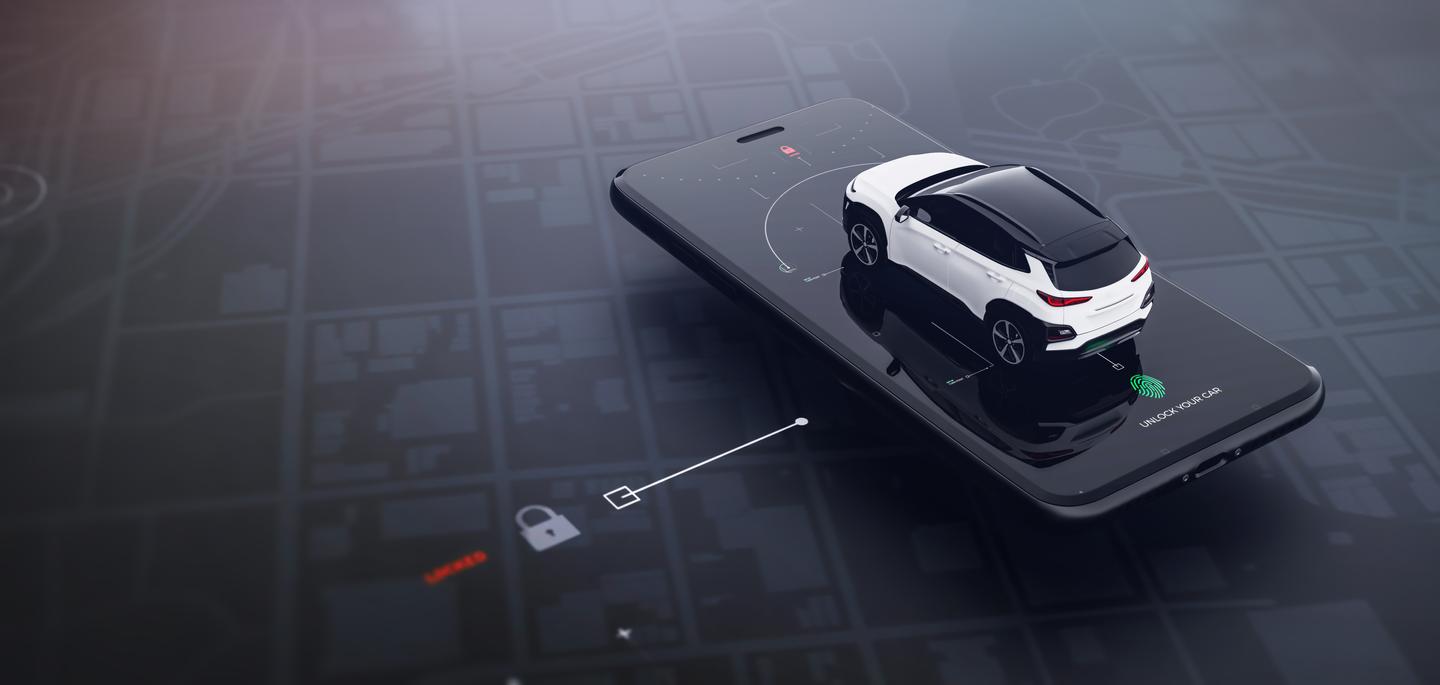Rethinking the Automotive Supply Chain with AI
AI and data-driven transformation are reshaping industries, and the automotive supply chain is no exception. The challenges affecting this space are substantial: geopolitical instability, fluctuating demand, the rapid shift to electric vehicles, and the increasing complexity of software-defined vehicles. Yet, despite the widespread conversation about the benefits of artificial intelligence, many companies are still struggling to translate the hype about AI into real-world applications.

In a recent webinar, I was joined by Jack Richardson, who leads Data and AI Transformation at Futurice, and Jim Shaw, former CEO of Bentley and an expert in sustainable luxury mobility. We explored the current state of AI adoption in the automotive supply chain, the opportunities for transformation, and actual use cases that companies can utilise today.
AI adoption in Automotive: More talk, less action
Discussions around AI in automotive have increased by 400% in the last five years, driven by themes like predictive supply chains, operational efficiencies, and autonomous vehicles. However, real implementation still remains limited.
We’re seeing a lot of talk about AI, but the level of real investment, whether in hiring, research, or production-grade AI applications, is still relatively small.
— Jack Richardson
Jack pointed to hiring trends as an indicator of AI maturity. While the conversation has intensified, the number of AI-related job postings in automotive has not grown correspondingly. A few automakers are leading the way. Companies like BMW and Mercedes have increased their AI hiring efforts, while Tesla continues to dominate in AI-driven product innovation. However, the industry as a whole is still in the early stages of integrating AI into critical operations like supply chain management.
For supply chains, this lack of real investment means that many OEMs continue to rely on manual processes, outdated data sources, and reactive decision-making. This approach will be increasingly unsustainable in a volatile global market.

Where AI can deliver real impact
Despite the slow adoption, AI presents significant opportunities to transform how supply chains are managed. From supplier assessment to compliance automation, the right applications of AI can help manufacturers move from reactive to predictive supply chain operations.
Smarter supplier assessment using alternative data
Automotive supply chains rely on thousands of suppliers, and assessing risk factors can be complex. Traditionally, companies evaluate suppliers based on financial reports, credit ratings, and compliance records, but these methods often fail to capture real-time risks.
Alternative data sources, such as news sentiment, hiring trends, and market activity, can offer a broader view of supplier stability. As Jack pointed out, if a supplier is making strategic hires, investing in R&D, or expanding production, those are positive signals. But if they’re in the news for financial difficulties or supply chain disruptions, companies need to act before it impacts production.
Jim added that this kind of real-time supplier intelligence is already a competitive factor. Chinese automakers have spent years investing in AI-driven supplier intelligence, giving them an agility advantage. Western OEMs need to catch up or risk falling behind.
By leveraging AI-powered monitoring of suppliers, manufacturers can move from periodic supplier evaluations to continuous risk assessments, making procurement strategies more resilient.
Automating compliance and documentation
One of the most resource-intensive challenges in the supply chain is managing regulatory and compliance documentation. A single-vehicle program can involve thousands of pages of documentation covering everything from hardware safety to cybersecurity requirements.
AI offers a way to automate and streamline this process. Drawing on an example from another industry, we demonstrated how AI-powered tools can automatically extract key information from tenders, match specifications against product catalogues, and reduce manual review cycles from weeks to days.
Jim emphasised the relevance of this for automotive: “Safety and compliance regulations are only increasing. It’s not just about reducing admin workload, it’s about making sure nothing gets missed in the process.”
AI can assist legal and procurement teams by automating contract analysis, flagging missing clauses, and ensuring supplier agreements comply with regulatory standards.

AI agents for supply chain orchestration
The next frontier in AI-driven supply chain transformation is AI agents, systems that don’t just analyse data but actively manage workflows. These intelligent agents could oversee supplier relationships, monitor contract negotiations, and even orchestrate procurement processes autonomously. For example, Futurice has built an AI-powered assistant, “Connie”, that integrates directly into our workplace systems to support real-time decision-making.
Instead of only relying on human teams to manually track supplier performance, AI agents can monitor thousands of data points simultaneously, identify risks, and even take predefined actions. This approach could fundamentally shift how supply chains are managed, reducing administrative burdens while increasing speed and accuracy.
It’s about resilience. AI can help OEMs anticipate disruptions, respond faster, and ultimately gain a competitive advantage.
— Jim Shaw
How automotive companies can get started
AI is not a silver bullet, but ignoring it is not an option. The automotive industry needs to move from experimental projects to fully integrated AI solutions in supply chain management and keep in mind that it’s not just about cutting costs.
For manufacturers looking to adopt AI in a way that drives real business value, the key steps are:
- Leverage AI for supplier risk assessment – move beyond static evaluations and monitor real-time indicators of supplier health.
- Automate compliance workflows – use AI to process large-scale documentation and reduce bottlenecks.
- Adopt AI agents for procurement – free up teams to focus on strategy rather than administration.
The road ahead
The automotive industry is at a crossroads. The shift toward software-defined vehicles, EV production, and increasingly complex supply chains means that old ways of working will no longer suffice. AI presents a clear opportunity to enhance operational efficiency, reduce risk, and improve decision-making – but companies must be willing to invest and rethink their traditional processes.
AI won’t replace supply chain professionals. However, the companies that figure out how to best combine human expertise with AI capabilities will be the ones that lead the industry.
This blog post is based on insights from our webinar, "Rethinking the Automotive Supply Chain with Data & AI".
Watch the full webinar recording here ->
Download our Generative AI working paper for further insights ->
 David MitchellChief Growth Officer
David MitchellChief Growth Officer





